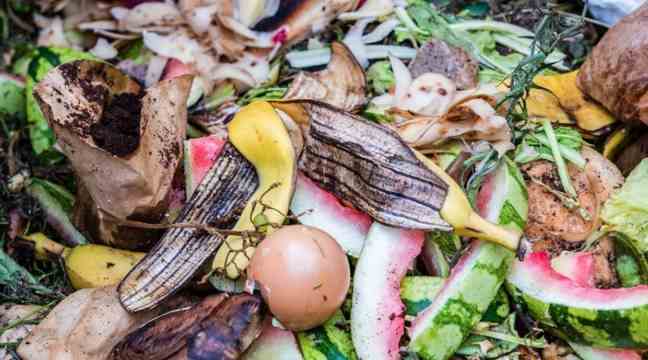In a little less than two years, all the vegetable peelings and leftovers from our plates will have to be recycled instead of going to the trash to end up burning in household waste incinerators. While waiting for the obligation of source sorting of bio-waste by individuals on January 1, 2024, large producers, whether company restaurants or central kitchens, have already started to get started. In Toulouse, since January, the rubbish of several colleges has been collected by a subsidiary of La Poste, Urby.
In addition to the delivery and collection of parcels and goods, this urban logistics company has also recovered bio-waste from several nursing homes or even the Déodat-de-Séverac high school for nearly two years, i.e. 17,000 leftover meals every day. In total, 27 sites are affected each week. “We collect an average of two tonnes per day, or nearly 10 tonnes per week, with CNG vehicles or cargo bikes to be able to go everywhere”, explains Alain Baret, the general manager of Urby Toulouse.
These cargoes are then stored at the Fondeyre site, before leaving once a week for the Lauragais, to be recovered within the Cler Verts company. Each year, this company treats approximately 20,000 tonnes of waste by methanisation.
Production of electricity and nitrogen fertilizers
“This allows us to produce energy sent back to the Enedis network, which is the equivalent of the electricity consumption of 1,000 homes. Residues from anaerobic digestion are called digestate. It is rich in phosphorus, nitrogen and potash, usually mined in Belarus, Canada or Morocco, and is used as fertilizer in crops and is spread in fields that are within a radius of 15 km around our factory”, explains Jean -Luc Da Lozzo, the boss of Cler Verts which produces 360 tonnes of nitrogen fertilizer each year.
Fields which in turn will make it possible to grow 4,000 tonnes of wheat which will be used to make thousands of baguettes consumed by Toulouse residents. “It’s a virtuous circle,” says the CEO of the Bélesta-en-Lauragais company. For this recycling specialist, the legal obligation of January 1, 2024 will bring a new deposit of organic matter estimated at 64,000 tonnes per year in the Toulouse conurbation, which will have to be recovered, in the form of compost, but also of green energies, in particular electricity and biogas.

